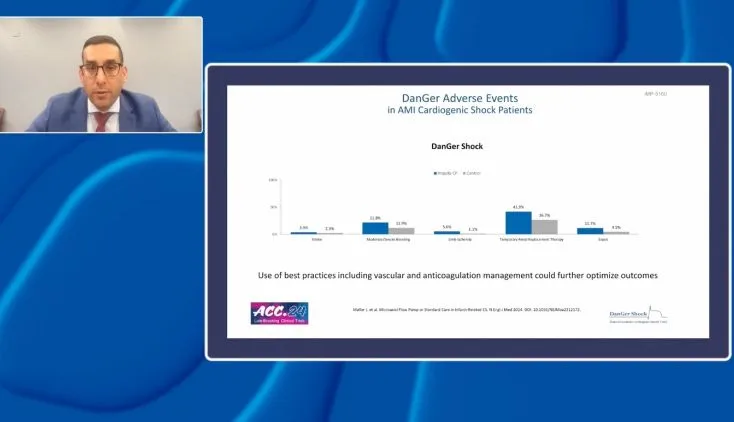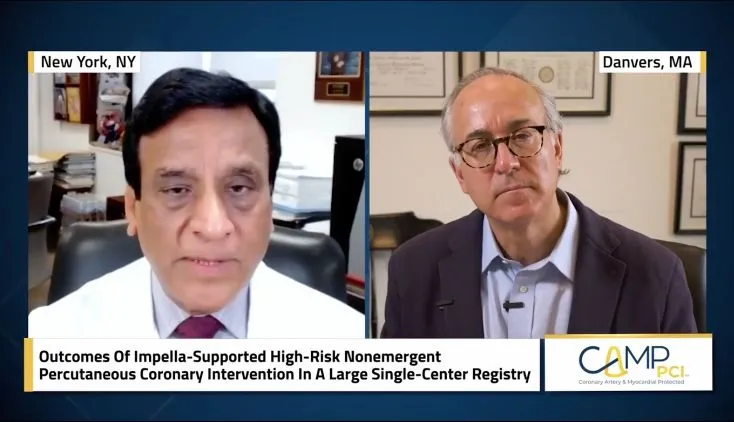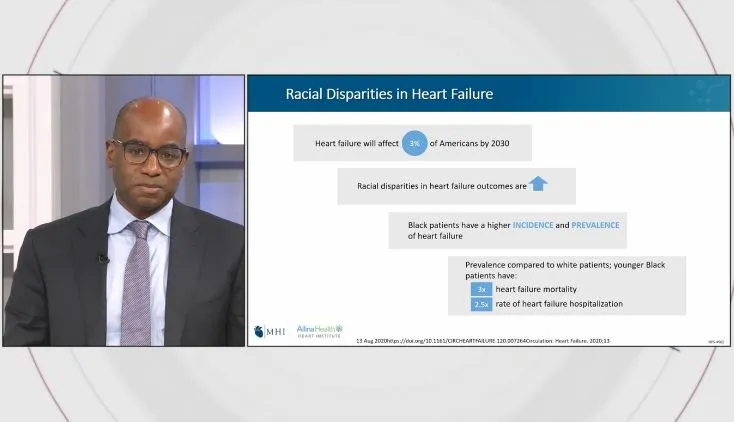Clinical Research & Data, Patient Management
Right Heart Catheterization in Cardiogenic Shock Associated with Improved Outcomes
Zubair Shah, MD, discusses his research on the use of right heart catheterization (RHC) in patients with cardiogenic shock. Dr. Shah is the director of mechanical circulatory support at Kansas University Medical Center in Kansas City, MO, and the senior author of a paper titled “Right heart catheterization in cardiogenic shock is associated with improved outcomes: insights from the Nationwide Readmissions Database” published in Journal of the American Heart Association.
Dr. Shah explains that there is still debate regarding the value of RHC in patients with heart failure and particularly those with cardiogenic shock. He undertook his research to increase awareness of the value of RHC in cardiogenic shock patients. Using the Nationwide Readmissions Database (NRD), the research examined 236,156 patients at index admission for cardiogenic shock in 2016 and 2017. Surprisingly, in this contemporary setting, only about 10% of these patients had a RHC to guide their management. Yet this research revealed much lower mortality in the cardiogenic shock patients receiving RHC ¾~25% compared to ~40% in patients not receiving RHC.
Looking at differences between patients who did and did not get RHC, Dr. Shah also notes some striking differences in baseline characteristics and comorbidities. Patients who received RHC were younger and had more comorbidities, including acute kidney injury (AKI). “And surprisingly,” he states, “in spite of being sicker, in spite of having kidney injury, the outcomes were strikingly better in this group.”
His research also examined 30-day readmissions in the 2 groups and found lower mortality in patients receiving RHC, lower rate of 30-day readmission, and longer mean time to readmission. Death on readmission was also lower in the RHC group. Dr. Shah explains that they excluded patients who got advanced therapies in the readmission analysis. “So, these were the people who had cardiogenic shock and were discharged without advanced therapies and still did better at 30 days. This indicates something happens when these people get right heart catheterization that not only improves their survival in the index hospitalization but also it percolates up to 30 days.”
Noting that the definition for shock includes hemodynamic parameters, Dr. Shah emphasizes, “you cannot identify shock unless you do right heart catheterization.” He emphasizes that the American College of Cardiology/American Heart Association (ACC/AHA) guidelines support the use of RHC in patients with heart failure with cardiogenic shock (class IA) and explains that his approach to using RHC is that if there is any suspicion of shock, patients should receive RHC.
NPS-2730


